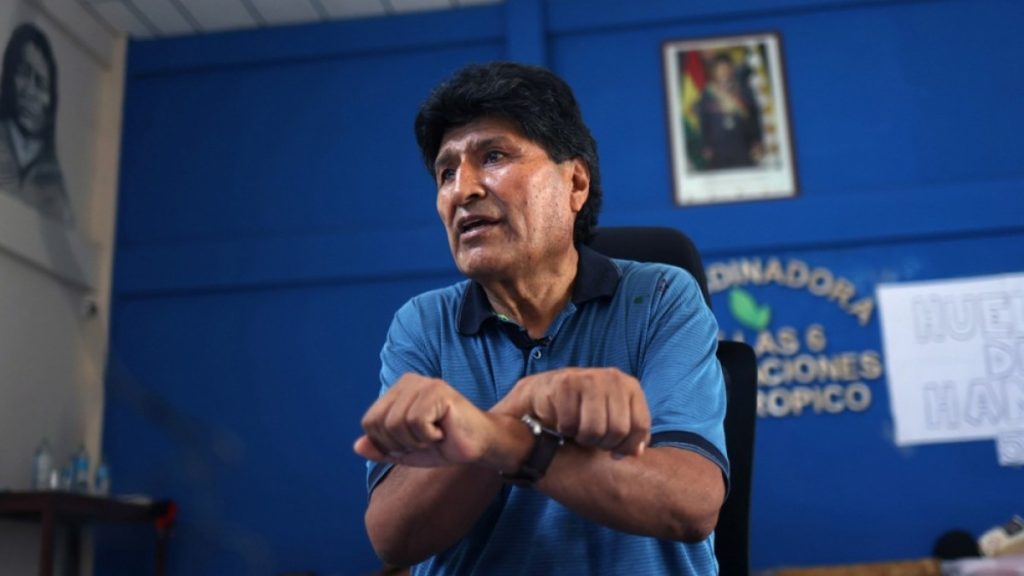The constitutional court in Bolivia has barred former President Evo Morales from running for elected office in the upcoming presidential election scheduled for August 2025. The ruling reaffirms a previous court order from 2023 that restricts presidents from serving more than two terms without the possibility of extending it to a third term. Morales, the country’s first Indigenous president, served from 2006 to 2019 and was initially very popular until he attempted to seek a fourth term, leading to his resignation in 2019 amidst allegations of election fraud. He returned to Bolivia after his ally Luis Arce won the presidency in 2020, but tensions between the two have remained as they struggle for control over the ruling party, Movement Toward Socialism (MAS).
The court’s decision was prompted by a request from a parliamentarian seeking clarification on the previous ruling, and it comes in the midst of ongoing protests by Morales’s supporters who are calling for Arce to resign. These protests began in October following charges of statutory rape against Morales, which he denies and believes were orchestrated by the government to prevent his political comeback. Tensions escalated further when Morales accused the government of attempted assassination, while the Arce administration claimed Morales staged the incident. Despite the court’s ruling, Morales, who has not yet commented on the decision, is likely to continue to play a role in Bolivian politics through his influence and support among sections of the population.
The political landscape in Bolivia is undergoing a significant shift with Morales being barred from running in the upcoming elections. Opposition legislator Marcelo Pedrazas hailed the decision as signaling a new era of politics in the country, with Morales not being on the ballot in 2025. The ruling has sparked chaos in Congress, with legislators loyal to Morales disrupting Arce’s yearly address by shouting and throwing flowers, forcing him to deliver his speech from the presidential palace. Morales’s lawyer, Orlando Ceballos, condemned the decision as politically motivated and aimed at disqualifying Morales from participating in the electoral process.
The ongoing power struggle between Morales and Arce, along with the broader political tensions in Bolivia, highlight the deep divisions within the country and the challenges of transitioning to a new political era without the involvement of Morales. The court’s ruling reflects the constitutional limitations on presidential terms, designed to prevent a concentration of power in the hands of one individual. However, the decision has also sparked concerns about the rule of law and the potential for further turmoil as Morales’s supporters continue to demand his participation in the political process. The upcoming presidential election in 2025 will be a crucial test for Bolivia’s democracy and the ability of its leaders to navigate the complex political landscape in the post-Morales era.













